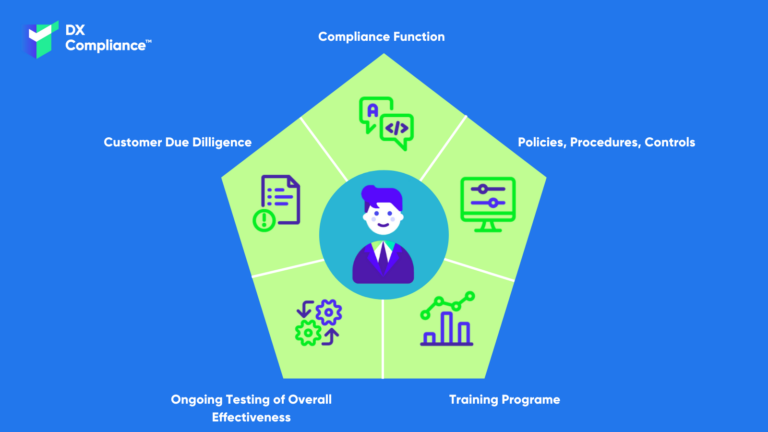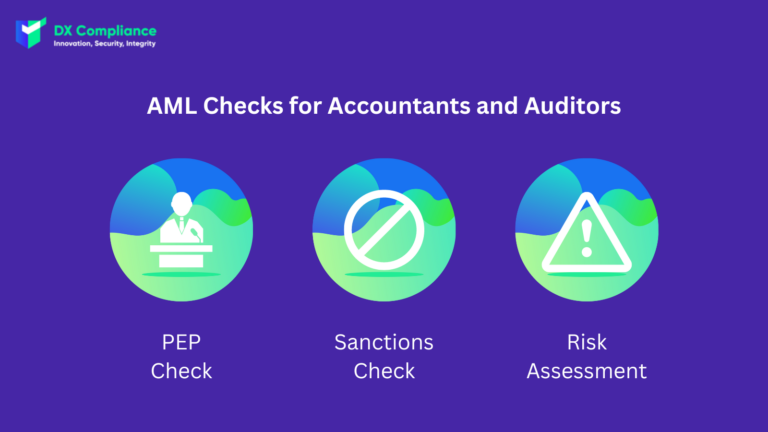20 July 2022, 11:02
Tagline
20 July 2022, 11:02
Tagline
Accountants and auditors are key players in the financial system. As such, they play an important role in ensuring that services are not used for criminal purposes.
However, with this trust comes great responsibility, as you are one of the main targets for money laundering criminals. Money laundering is the processing of criminal proceeds to disguise their illegal origin and make them appear legitimate.
To protect yourself, you need to make sure your anti-money laundering (AML) procedures are watertight. Accountants and auditors around the world need to check their client base against AML checks to take a risk-based approach, comply with the law, and protect your reputation.
Failure to comply with AML regulations can have major consequences. These can be fines but also up to court proceedings or even jail time.
It is seen time and time again that these penalties are imposed. The main reason is that accountants and auditors have difficulties in implementing an AML process. For this reason, in this AML Checks for Accountants Best Practice blog, we explain how you can easily and efficiently prevent money laundering and terrorist financing and comply with AML laws.
As explained in the introduction, accountants and auditors are one of the main targets for money laundering and other criminal activities. Therefore, it is relevant that they protect themselves. But beyond that, there is another important reason: AML regulations.
AML Checks for Accountants and Auditors are necessary because you are required by regulations, e.g. by the FAFT. If you are an accountant, auditor or other financial services provider, money laundering regulations require you to know your clients before you act for them. If you provide services to clients, you are required by law to keep anti-money laundering records.

The services offered by lawyers and accountants, which may be misused in ML operations, include the following:
There are three important signs accountants should look for when trying to prevent money laundering. If these red flags are detected, it is a sign that it indicates suspicious activity such as money laundering.
These include:
Think about your clients and ask yourself: are you really sure that you are not involved in any money laundering activities of a client?
After a client has been screened at the beginning of the partnership to see if it should be included, often no further action is taken. It is often forgotten that risk assessments are not just about the initial reviews of a customer, but also have implications for your ongoing work with them.
It could be that criminal activity has commenced during the time you are already in a business relationship. That is why it is important to record checks regularly even while in a business relationship.
For many accountants, maintaining risk assessments is one of the main problems.
Ongoing monitoring falls into two categories:
A general annual review of the assumptions you have made about a client as part of a risk assessment.
Monitoring specific events, such as a change in the way they deliver your services, requires a new assessment of how this will impact your AML process with the client.
The guidelines for being classified as a high-risk customer may not be clear-cut. For example, an obvious high-risk customer might be a political figure. However, when you dig deeper, many higher-risk customers are more difficult to identify.
Take the example of a family friend who works at a cash-intensive company. You feel like you know him; you may have even gone to school with him. But while you can vouch for his identity, you need to treat his business as objectively and fairly as you would a stranger in a cash-intensive business.
The AML Checks for Accountants and Auditors are a necessary evil for many. They think that they do not benefit from it and that it is only a necessary evil.
But the risk of not doing AML checks correctly far outweighs the time you have to spend on them. So now more than ever, it’s time to get your AML exams right.

As an accountant or auditor, it is important to perform proper due diligence and KYC. This includes various activities, which we have compiled below.
PEP (Politically exposed Person) is not in all jurisdictions defined in the same way. But in general, Politically exposed Persons (PEPs) are persons who hold or have held an important public function. This function may, for example, give them influence over the use of taxpayer funds or the awarding of contracts by state-owned enterprises. As such, they are considered by the Financial Action Task Force to be a category of individuals more vulnerable to bribery, corruption, and money laundering than most.
Within the sanction screening, you can check for targeted financial sanctions (TFS). Individual countries and multinational organizations (e.g., the EU and the United Nations) impose sanctions to pressure other countries or organizations to change their behavior. Sanctions can be directed against individuals, specific companies, or entire nations.
There are 2 main types of financial sanctions: Asset freezing and the prohibition to offer funds and services.
The aim of a client risk assessments is to identify and assess the money laundering (ML) and/or terror financial (TF) risks identified at individual client level.
Therefore, the Risk Based Approach is important to implement in your organization. As a core principle of AML compliance the so called risk-based approach (RBA) refers to adjusting the level and type of compliance work done (frequency, intensity and/or amount), to the risks present.
DX Compliance is an AML and Compliance firm helping our clients identify, prevent and report financial crime. DX Compliance help Banks, FinTech’s and Payments Providers to continually monitor their risk and detect the threat of money laundering to ensure compliance and reduce fines.
CheckAML is the most efficient and cost-effective way of carrying out money laundering checks. We offer the only instant AML solution with full PEP & sanctions screening, ongoing monitoring and customer risk assessment worldwide. This helps to ensure Client Due Diligence for legal practices.
Our data and coverage is global, real-time and reliable, all your checks are automatically saved, for audits and regulatory visits. So everything you need we’ve got you covered.
Start your journey today and use CheckAML to screen your clients against global databases on an ongoing basis. To setup your account it takes less than 5 minutes. To learn more we also recommend to speak to our regional Sales Team and ask for a Demo.

08.08.2022
An overview of recent AML developments in the UAE.
Get access
15.10.2021
The introduction of 6AMLD regulations aims to reduce financial crimes.
Get access
27.07.2021 AML Compliance
Uncovering the PEP and Sanctions Lists and Global Regulation
Get access